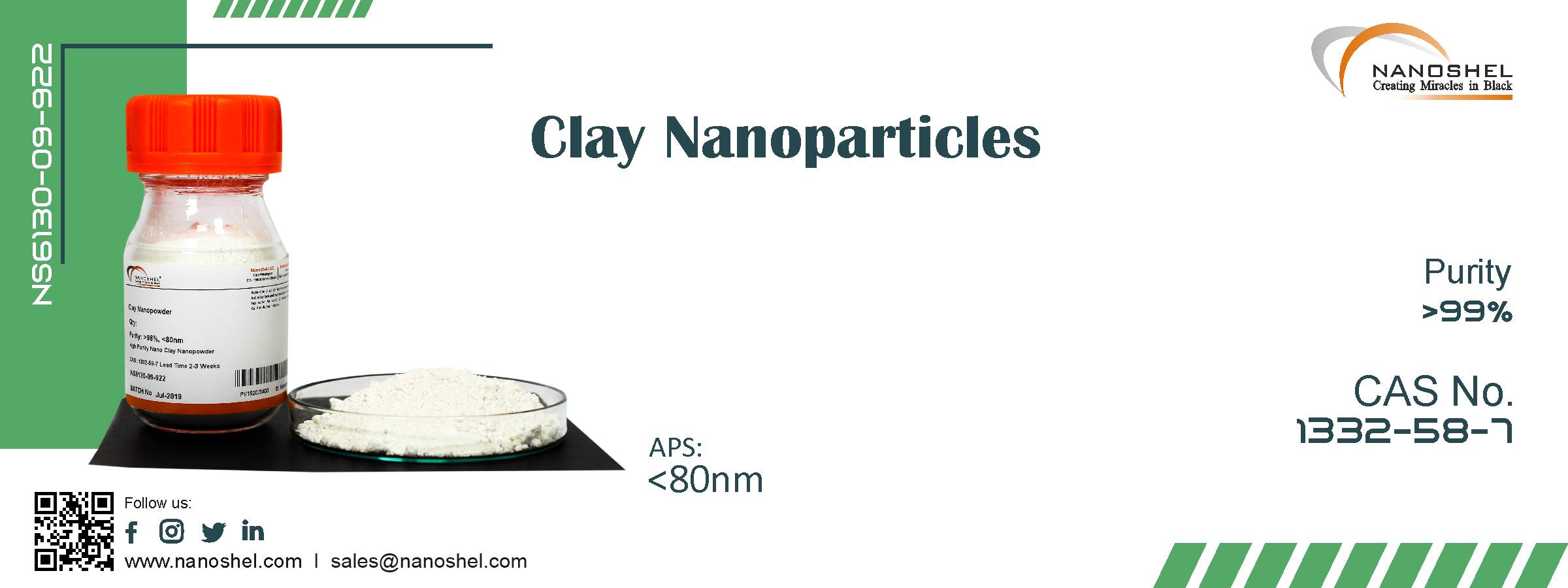Clay Nanoparticles
Purity: >99%, APS: <80nm
Clay Nanoparticles
Particles Size Analysis - Clay Nanoparticles
| Product | Clay Nanoparticles | |
| Stock No | NS6130-09-922 | |
| CAS | 1332-58-7 | Confirm |
| Purity | >99% | Confirm |
| APS | <80nm | Confirm |
| Molecular Weight | 540.46g/mol | Confirm |
| Crystal System | Monoclinic | Confirm |
| Form | Powder | Confirm |
| Color | White Cream | Confirm |
| Density | 2.35g/cm³ | Confirm |
| pH | 7-8.5 | Confirm |
| MOHS Hardness | 5.5 | Confirm |
| Water Absorption | 270-440 % by weight | Confirm |
| Oil Adsorption | 70-150 Gms oil/Gms | Confirm |
| Softening Point | 1800 F or 980 C | Confirm |
| Moisture | 1-3% | Confirm |
| Refractive Index | 1.47 | Confirm |
| SSA | 50-70m2/g | Confirm |
| Quality Control | Each Lot of was tested successfully | |
| Main Inspect Verifier | Manager QC | |
Typical Chemical Analysis
| Assay | >99% |
| Other Metal | 9500ppm |
Expert Reviews
Clay Nanoparticles

Contact Us
From us, you can easily purchase Silver Nano particles as a new generation of Antimicrobials (Ag, Purity: 99.9%, APS: 50–80 nm, Metal basis) at great prices. Place an online order and we will dispatch your order through DHL, FedEx, UPS. You can also request a quote by mailing us at sales@nanoshel.com. We invite you to contact us for further information about our company and our capabilities. At Nanoshel, we look forward to your suggestions and feedback.
Email Us:
sales@nanoshel.comcmg@nanoshel.com
🔆
Follow Us:
Direct Call Us:
USA – Sales/Research
+1 646 470 4911
+1 646 470 4911
UK – Sales/Research
+44 1782 454 144
+44 1782 454 144
Ireland – Sales/Research
+354 71 985 3714
+354 71 985 3714
India – Sales/Research
+91-9779550077
+91-9779238252
+91-9779550077
+91-9779238252
Note:
*Exchanges of materials/products are not permitted. Nanoshel does not offer refunds.
*US Dollar Cheques Not Accepted, Only Bank TT/Credit Cards Accepted
*Exchanges of materials/products are not permitted. Nanoshel does not offer refunds.
*US Dollar Cheques Not Accepted, Only Bank TT/Credit Cards Accepted
